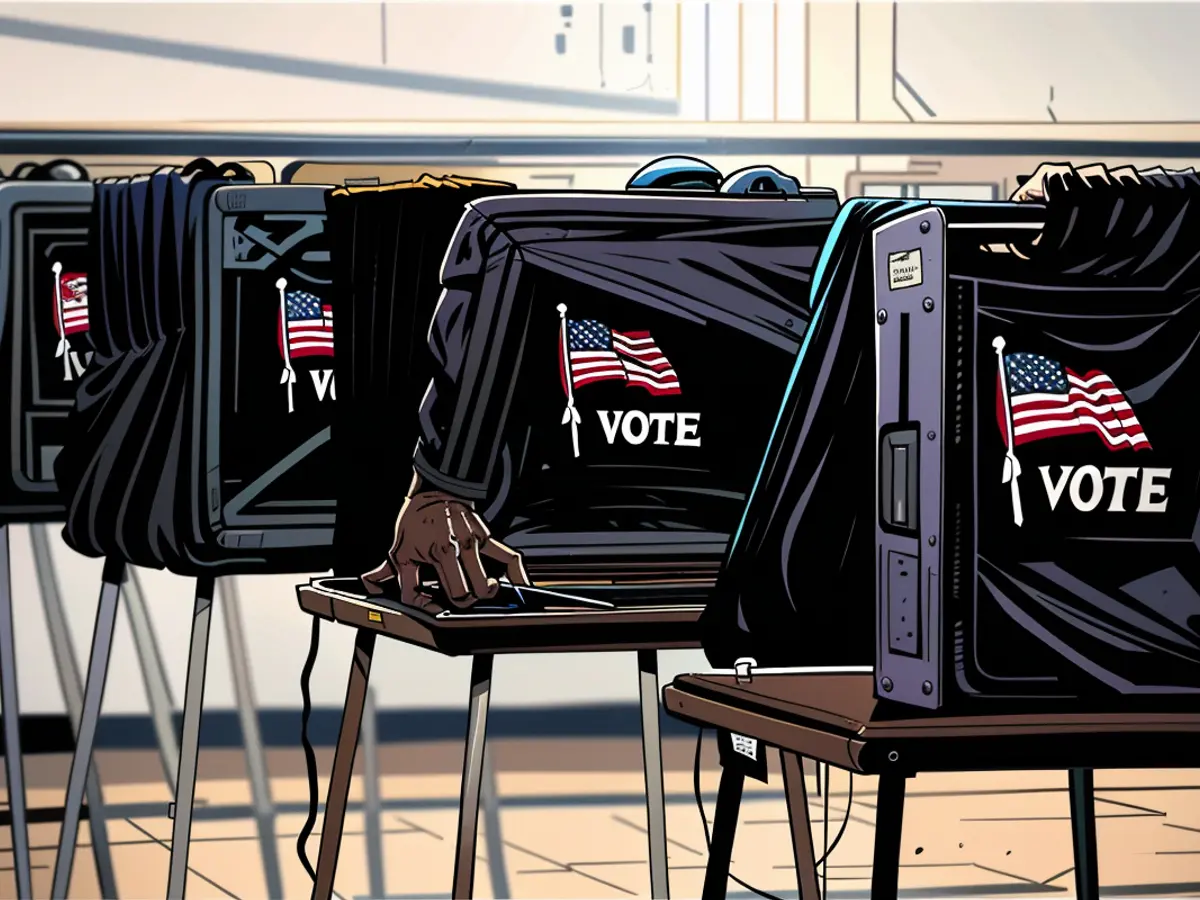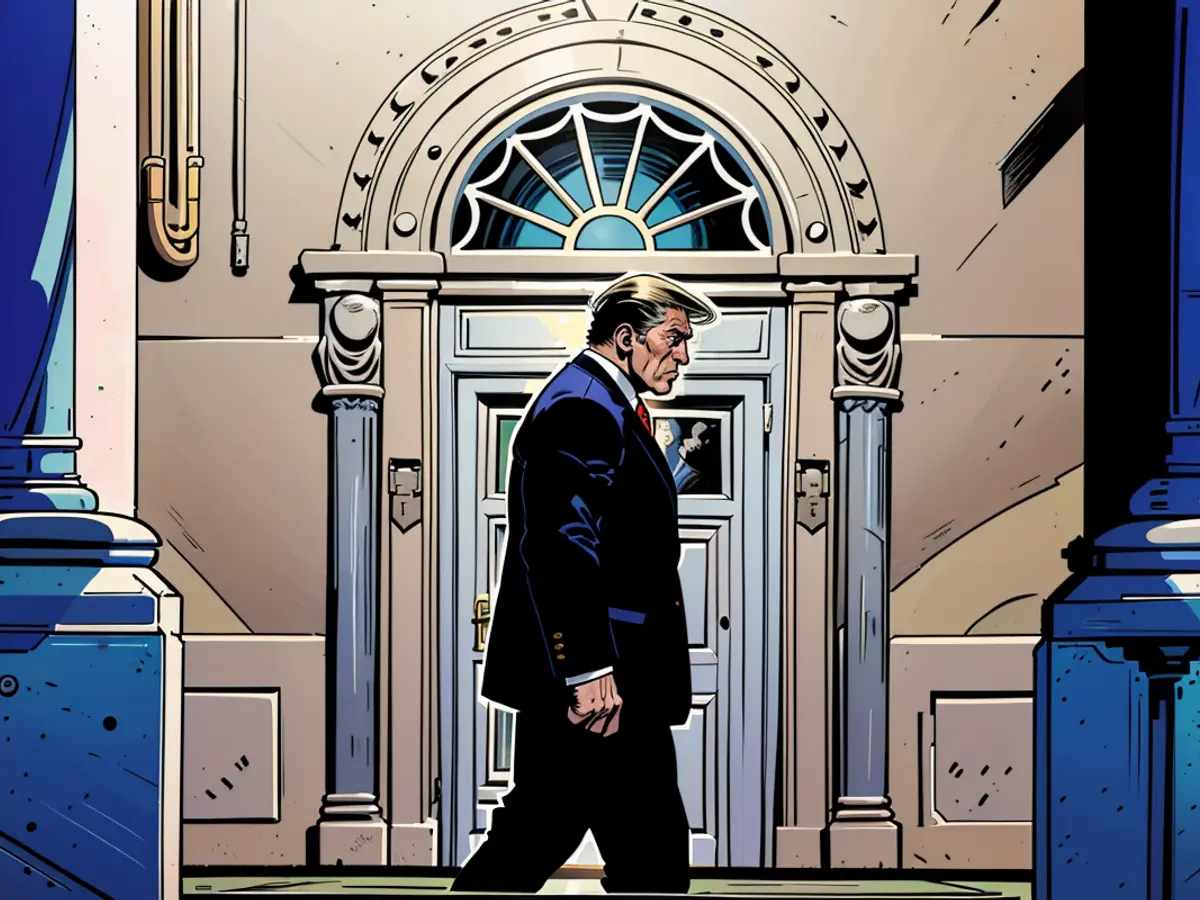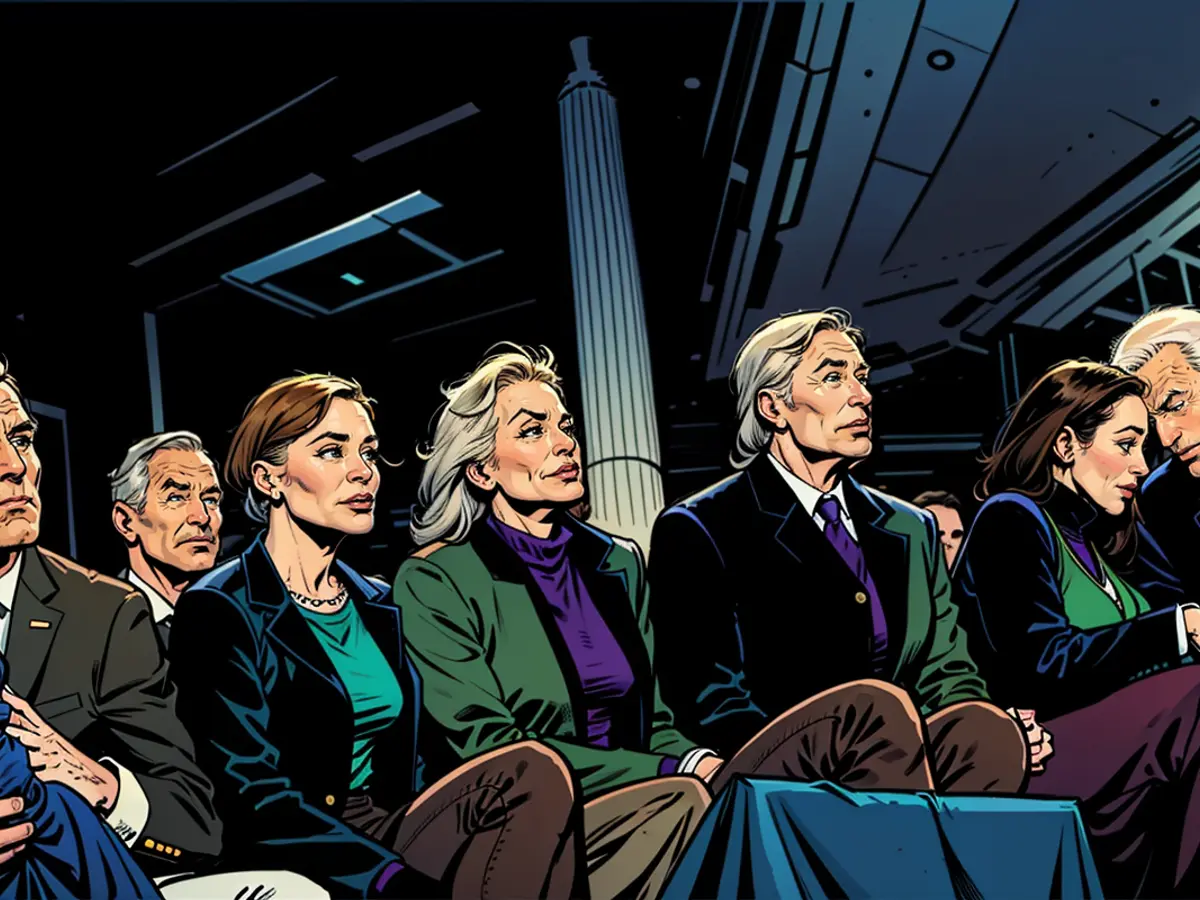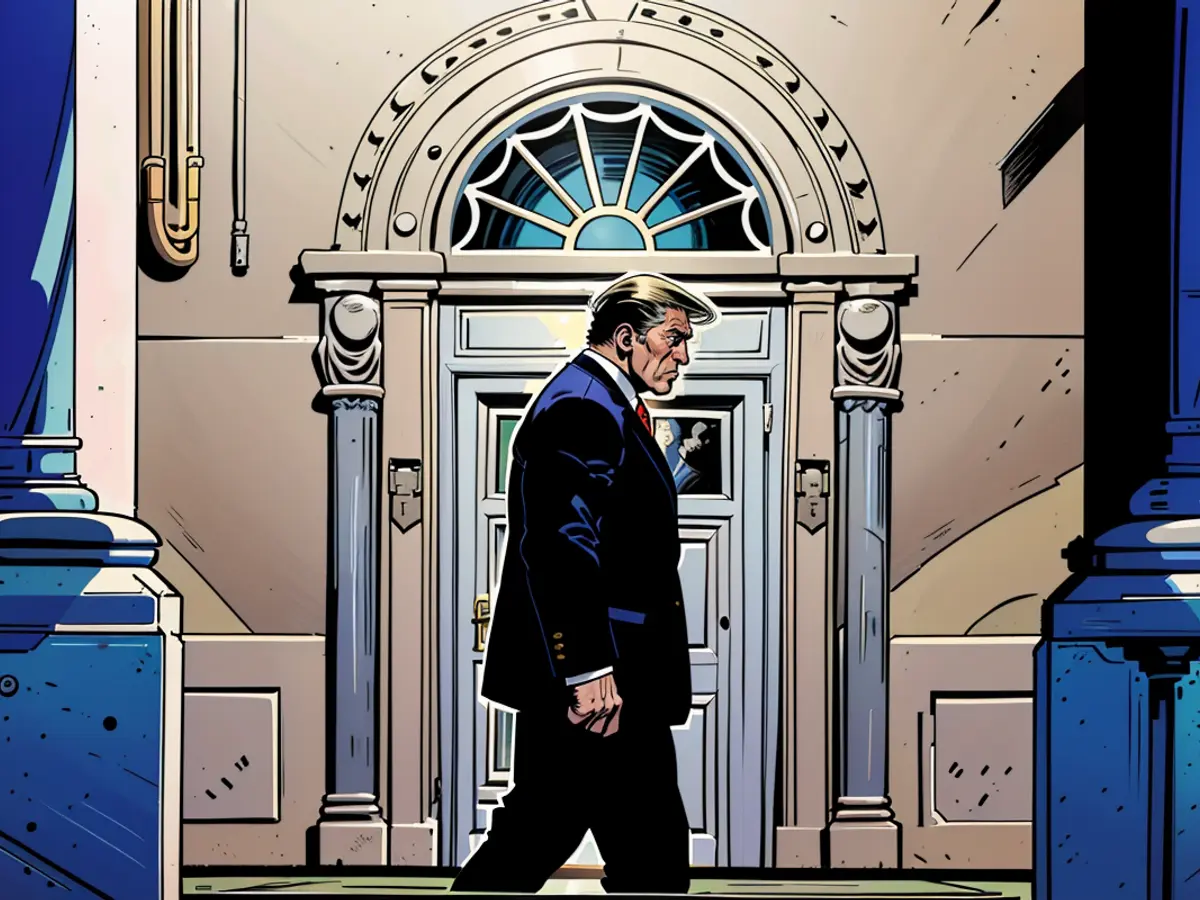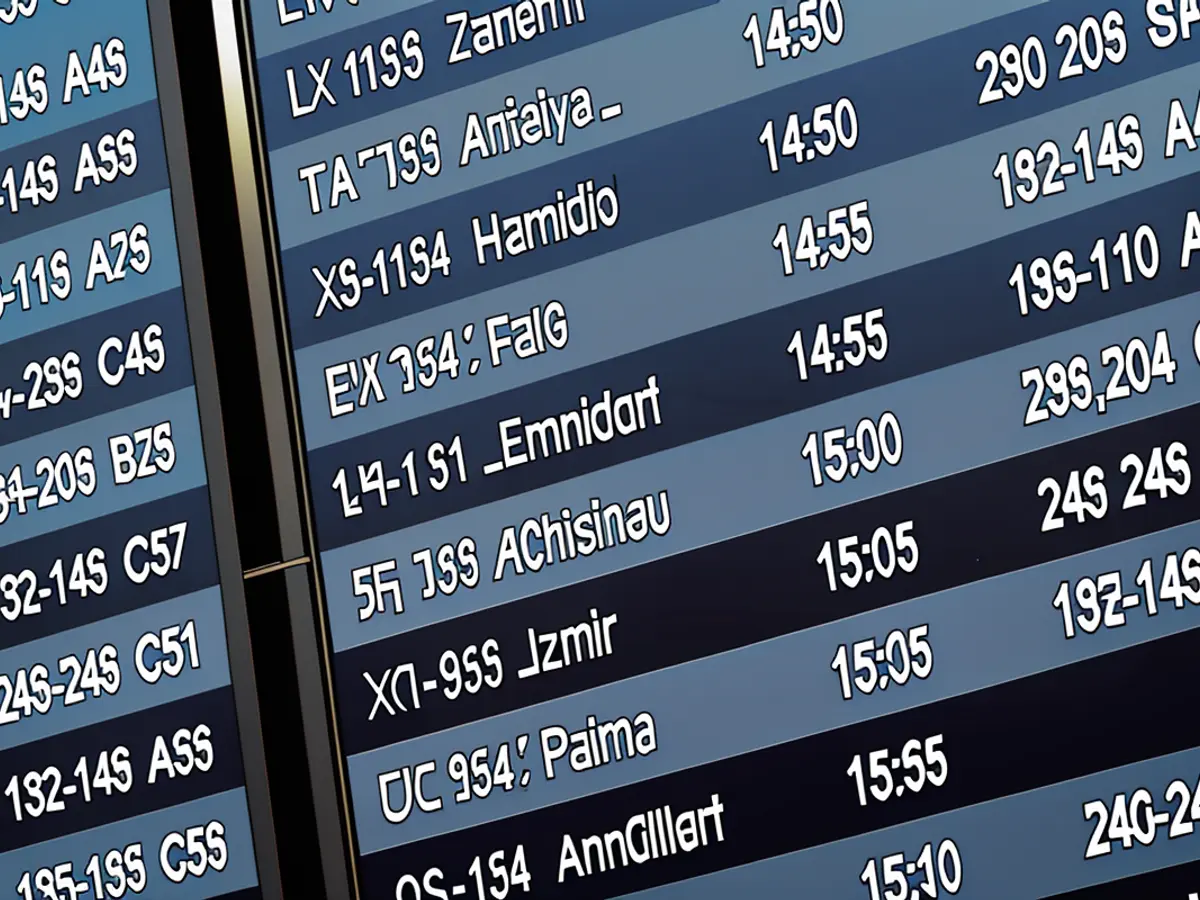Al terminar la RNC, esfuerzos de los estados colgaderos para combatar la desinformación aumentan antes de las elecciones
When the audience members during an event at the Republican National Convention were asked on Monday to raise their hand if they thought these images were artificially generated, several participants were able to correctly guess which images were real, while some were left perplexed.
Microsoft experts Ginny Badanes and Ashley O’Rourke guided the audience through common signs of deepfakes, methods of labeling content, tips on creating a plan to combat deepfakes, and ways to report during a time when state and local governments and political parties are working to address misinformation head-on.
Badanes explained that they conduct these trainings, which were hosted by the organization All in Together and presented by Microsoft, to ensure those involved in the political process are aware of deepfakes and have a plan in place if something happens involving their candidate or organization.
O’Rourke mentioned that some of the most compelling and believable deepfakes are of local officials and candidates for office rather than candidates on a federal level.
"If you’re a campaign or candidate running for office, you want to be able to put out photos of your events and press statements and videos," she said. "And you want voters to trust the content that you are putting out as a trusted source of information, and this deepfake issue is causing voters to lose that trust."
As the first presidential election since the growth of sophisticated AI and the deepfake era approaches, swing states have been preparing to fight back against potential misinformation by implementing measures to ensure their election offices are prepared and passing legislation to address the threat.
"2024 is the first American presidential election year at this intersection of election-related mis- and disinformation and the rapid growth of AI generated content. Of course, it’s not new. AI has been around, but really we have this peak at this intersection this year, and a bit of a perfect storm," said Megan Bellamy, the vice president of law and policy at the Voting Rights Lab.
State and local governments’ attempt to fight misinformation
In Philadelphia, the city commissioner’s office budget includes $1.4 million for an extensive communications plan, including a plan to fight misinformation in the city, that focuses on proactively communicating with communities targeted by misinformation through platforms such as social media and ads, as well as responding to misinformation when it emerges.
Misinformation spread rapidly through Pennsylvania during the 2020 election as the swing state faced baseless allegations about voting in Pennsylvania, perceived unfairness toward Republican poll-watchers, and violations of election rules. Former President Donald Trump and his campaign also spread dubious information about mail-in voting across many platforms, from social media to the debate stage.
City Commissioner Seth Bluestein said they are utilizing a part of the budget to respond to misinformation related to the integrity of elections in Philadelphia.
"It’s always important to make sure that not only are elections being well run and safe and secure and efficient, but also that the voters have trust in the process and that their votes are being counted accurately," Bluestein said. "So it’s essential to having faith in the system to be able to push back on mis- and disinformation when it occurs."
Commissioner Chair Omar Sabir emphasized the importance of reaching out to Latino, African American, and Asian communities, as they are being targeted by misinformation efforts.
"Across our country, the misinformation has been targeting areas like Philadelphia, Atlanta, Milwaukee, those are areas where our election system has been accused of doing the various activities. And those sort of attacks have led to people not believing in the process or thinking that their vote does not count," Sabir said.
Sabir mentioned that the misinformation fighting efforts will target voters where they are, including social media, billboards, and radio ads. He said they will have a full staff communications firm available to respond when people come up with different forms of disinformation.
Lawrence Norden, senior director of the Brennan Center’s Elections and Government Program, stressed the importance of being proactive and providing accurate information to voters ahead of the election.
"There are certain themes that repeat every time – ‘you can’t trust the voting machines, or hand counting would be better, or there’s some kind of fraud in the system in terms of who is voting.’ Like, getting ahead and explaining to people what the security measures are in place ahead of time is the best way to inoculate people," Norden said.
In Arizona, Secretary of State Adrian Fontes launched an advisory committee last month to make policy recommendations regarding AI and election security. The discussions are expected to focus on the potential benefits and risks to election security in terms of generative AI.
Fontes was recognized in May for his office’s work creating election security tabletop training exercises aimed at protecting the state’s election infrastructure. He has held six exercises that incorporate AI and deepfake training, exposing participants to scenarios and challenges involving cyberattacks and disinformation campaigns.
The series of training programs began in December for election officials and has expanded to include law enforcement and national media.
"Advances in AI and deepfake technology heighten the potential for chaos. This national recognition reaffirms that we are committed to whatever challenges may come our way in maintaining the integrity and security of elections in Arizona," Fontes said in a press release in May in response to receiving an award for the work.
Bellamy emphasized the importance of fighting misinformation going into this election and the significance of focusing on the administration of elections themselves, as any sort of mis- or disinformation shakes that foundation.
- En materia de seguridad electoral, las legislaturas estatales están presentando legislación para regular el uso de la IA y los falsos profundos en campañas políticas con el fin de impedir la propagación de información falsa.
- La propagación de información falsa a través de la tecnología deepfake ha quedado como una preocupación significativa para las partes políticas y los gobiernos, ya que puede erosionar la confianza de los votantes en el proceso electoral y la información que reciben de los candidatos.
[Mis- and disinformation is really widespread], dijo Bellamy. "Estamos hablando de rumores falsos y equivocaciones sobre elecciones, pero también este disinfo que está dirigido a mensajes específicos que se difunden deliberadamente para engañar a los votantes."
[Legislation taking aim at AI and deepfakes in campaigns and elections]
Cuando el representante estatal de Arizona Alexander Kolodin estaba sintonizado en un episodio de un podcast económico al que a menudo se le acostumbra, se sorprendió al descubrir que escuchaba una versión generada por la IA de la narradora contando una historia.
"Sabía este chico de voz, y sonaba exactamente como él", dijo el republicano de Arizona. "Voy, 'Oh, santos miedos. Esto va a ser un problema en 2024, y esto es algo que ahora necesitamos abordar porque la tecnología está allí'."
Quería proporcionar una ley modelo para el resto del país que abordara los falsos profundos, pero que aún respetara la Primera Enmienda y los derechos de habla y expresión de los ciudadanos. La ley Kolodin, HB 2394, permite a una persona presentar acción por impersonación digital dentro de los dos años de conocerse sobre el contenido si la impersonación no fue clara que era una impersonación digital. La gobernadora democrática Katie Hobbs la firmó en mayo.
Además, en otra ley que sale de Arizona, la legislatura limitó a los creadores la creación y distribución de medios sintéticos de un candidato en el boletín dentro de noventa días de las elecciones, a menos que haya una "desclasificación clara y conspicua que conveja a un razonable persona que el medio incluye contenido generado por la inteligencia artificial".
Además de la requisita de desclasificación, la ley, SB 1359, impone multas civiles para aquellos que no cumplen. Se firmó en mayo.
David Edmonson, vicepresidente sénior de política estatal y relaciones gubernamentales de TechNet, dijo que había habido una gran explosión de interés en el nivel legislativo estatal alrededor de la IA, y uno de los temas que se han repetido repetidamente, especialmente en un año electoral, ha sido el tema del uso relacionado con las elecciones de la IA falsa y la información.
"La IA tiene el potencial de solucionar algunos de los mayores desafíos de nuestro tiempo", dijo Edmonson. "Sin embargo, reconocer y abordar los riesgos genuinos asociados con la IA es crucial para su avance responsable, y esto incluye impidiendo a los candidatos, o a sus agentes, o a cualquiera otra persona que use la IA para lanzar contenido de campaña deliberadamente engañoso".
El gobernador de Wisconsin Tony Evers firmó una ley en marzo que requiere un desclasificador del uso de la IA para el contenido en los anuncios políticos. La ley, AB 664, que pasó a través de la legislatura de Wisconsin se refiere a "medios sintéticos" como audio o video contenido que se produce por medios generativos de inteligencia artificial y da instrucciones a los desclasificadores de audio y video.
Las violaciones a la requisita de desclasificación resultarían en penas hasta $1.000 por violación.
Adam Neylon, quien co-patrocinó la ley, dijo que comenzó con un esfuerzo bipartidista para abordar los problemas de la IA, y el impacto en las campañas, comerciales y publicidad se repetía repetidamente en las conversaciones. Dijo que era un problema real para la democracia cuando se comienza a erosionar la confianza en el proceso democrático, y esta legislación garantiza que las personas pueden confiar en lo que ven, creer lo que oyen y escuchen, mientras que pueden determinar a sí mismos cuándo se utiliza la IA para manipular algo.
"Así que en Wisconsin ahora, trabajamos en un esfuerzo bipartidista que se firmó en ley por el gobernador para requerir que las campañas o organizaciones políticas proporcionen un desclasificador cuando se utilizan para publicidad de campaña", dijo Neylon.
Lia Holland, directora de campañas y comunicaciones para Fight for the Future, expresó preocupaciones de que las leyes que requieren desclasificaciones "crearán una asimetría en la medios y aplacarán el discurso político legítimo".
"La gente puede hacer un buen trabajo de impersonar a políticos y evitar estas leyes", dijo Holland. "Y qué sobre los falsos profundos positivos? He visto muchas imágenes que hacen a Trump parecer un superhéroe musculoso, ¿esos necesitan ser desclasificados? Y ¿qué es la línea en el arte para generado por AI o no generado por AI – los artistas discapacitados que utilizan la IA como herramienta en su arte pueden enfrentar discriminación cuando su arte es forzado a etiquetarse como generado por AI?"
Lea también:
- Se constituye un nuevo grupo parlamentario de derechas en el Parlamento Europeo, sin la AfD
- Indignación por supuestos planes de asesinato contra el CEO de Rheinmetall
- La alianza de derechas de Orban en la UE, a punto de alcanzar la categoría de grupo parlamentario
- Cuela ilegítima - La Corte Internacional manchha la reputación de Israel
